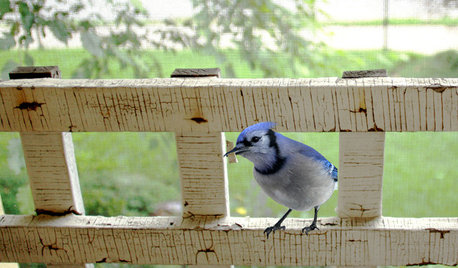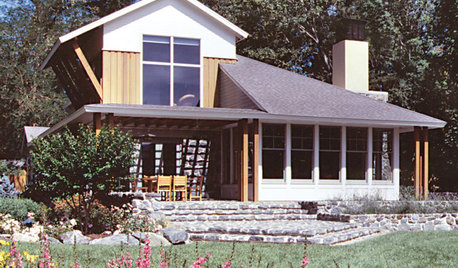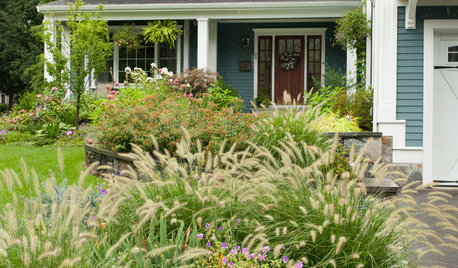Just Curious.....
ezzirah011
13 years ago
Related Stories

GARDENING FOR BIRDSBackyard Birds: Meet Some Clever and Curious Jays
Boisterous jays provide plenty of backyard bird-watching in winter. Here’s how to identify all the varieties and welcome them into your yard
Full Story
HOUZZ TOURSMy Houzz: Vancouver Artist's Curious, Collected Home
Family memorabilia and intriguing collections tell a lively story in a Canadian artist's one-bedroom home
Full Story
KITCHEN DESIGN10 Reasons to Love Banquettes (Not Just in the Kitchen)
They can dress up a space or make it feel cozier. Banquettes are great for kids, and they work in almost any room of the house
Full Story
ECLECTIC HOMESHouzz Tour: Perfection Just Out of Reach in an Eclectic Colonial
Design objects, antique finds and hand-me-downs mingle in this designing couple’s inviting — and ever-evolving — Massachusetts home
Full Story
HOUZZ TOURSHouzz Tour: Just Being Modest on Lake Superior
You don’t have to go all-out to have a retreat that’s all good, this Wisconsin vacation home shows
Full Story
REMODELING GUIDES10 Elements of the Just-Right House
The World Series, Moneyball and the smart house: The case for smaller homes rich in character and function over the big and bland
Full Story
LIFEAge Is Just a Number: Houzzers’ Homes Old and New
Hear the stories behind homes ages 1 to 171, then share yours
Full Story
HOUZZ TVHouzz TV: A Just-Right Kitchen With Vintage Style
Video update: A 1920s kitchen gets a refined makeover but stays true to its original character and size
Full Story
LANDSCAPE DESIGNGreat Design Plant: Lively Fountain Grass Thrives Just About Anywhere
Enjoy fountain grass for its exuberant form, long-lasting color and texture for borders and more
Full Story



susanlynne48
slowpoke_gardener
Related Discussions
Just curious - what is your oldest, working appliance?
Q
Just curious.... Evergreen x calyptratum
Q
Is there an actual name for the style of my house? (Just curious.)
Q
Just curious, GA?
Q
shankins123
Okiedawn OK Zone 7
shankins123
ezzirah011Original Author
oldbusy1
Okiedawn OK Zone 7
miraje
mulberryknob
ezzirah011Original Author
joellenh
owiebrain
ezzirah011Original Author